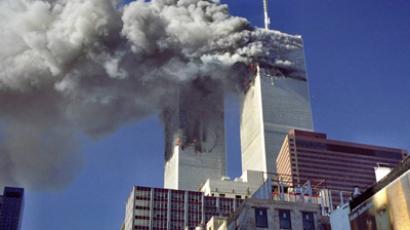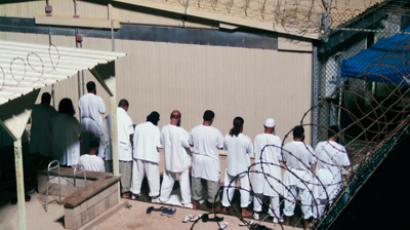ACLU, media to argue against censorship in 9/11 mastermind trial

The military judge in the trial of alleged 9/11 masterminds has agreed to hold a hearing in which the ACLU and a consortium of media groups would be allowed to argue their case against government censorship in the high-profile case.
Judge James L. Pohl, President of the Guantanamo military
commission, issued an order Wednesday allowing the American Civil
Liberties Union (ACLU) and 14 media groups, which call themselves
“the Press Objectors,” to present their arguments on
August 22.
“As neither side objects to counsel for the ACLU and Press
Objectors to present oral arguments on the motion, the request for
oral argument is GRANTED,” the order, posted on the military
commission’s website, reads.
In May, a consortium of 14 media groups, including the
Associated Press, Reuters, The New York Times and The Miami Herald,
and the ACLU separately filed motions protesting regulations under
which there is a 40-second delay of the broadcast of the trial. The
time is sufficient for military officials to muffle the defendants’
speech if they start to describe the torture they are alleged to
have been subjected to by CIA operatives.
The ACLU called said the practice was based on a “chillingly
Orwellian claim” that the accused “must be gagged lest he
reveal his knowledge of what the government did to
him.”
The media group said the government was trying to shield CIA
activities from the public eye.
“The First Amendment allows commission proceedings to be
closed only upon a specific finding of a 'substantial probability'
of harm to national security or some equally compelling
governmental interest,” Lawyer David Schulz wrote in the
media’s motion.
Khalid Sheikh Mohammed and his four co-defendants stand accused
of masterminding the September 11, 2001 attacks against the United
States. They face eight charges in total, including terrorism and
murder in violation of the law of war, meaning that a guilty
verdict could put them on death row.
The five men were captured by US and Pakistani intelligence
services in 2003, and were held captive at CIA black sites outside
America until 2006, when they were transferred to Guantanamo.
Mohammed confessed to plotting the 9/11 attacks “from A to
Z,” but even US officials later admitted the prisoners were
subject to “enhanced forms of torture.” Mohammed was subject to
waterboarding at least 183 times, the officials say.
Originally, they were to be tried by a Guantanamo military commission, but the Supreme Court ruled against holding proceedings there. In 2009, newly-inaugurated President Barack Obama asked for the trial to be held in a New York federal court. However, under the National Defense Authorization Act (NDAA), signed by Obama in January 2011, the US Defense Department was barred from using its funds to house Gitmo prisoners in the United States. The provision meant that the venue of the trial had to be moved back to Guantanamo.
Defendants refused to enter pleas during their May arraignment.
The trial's actual proceedings are scheduled to begin next
year.














